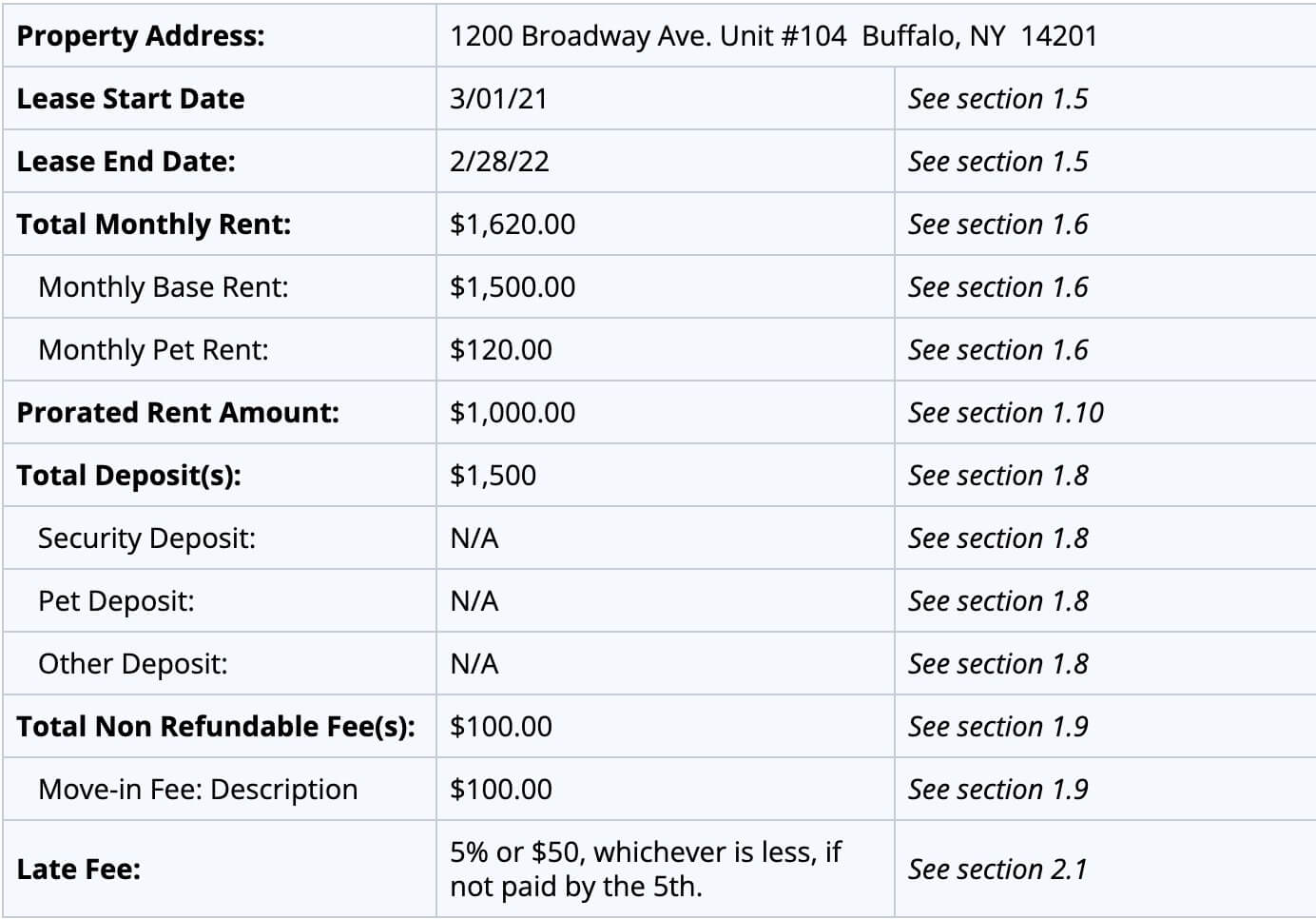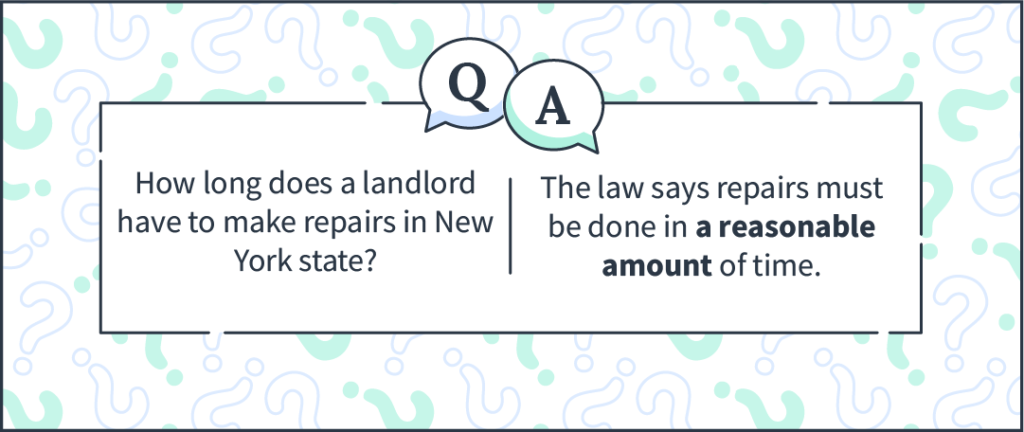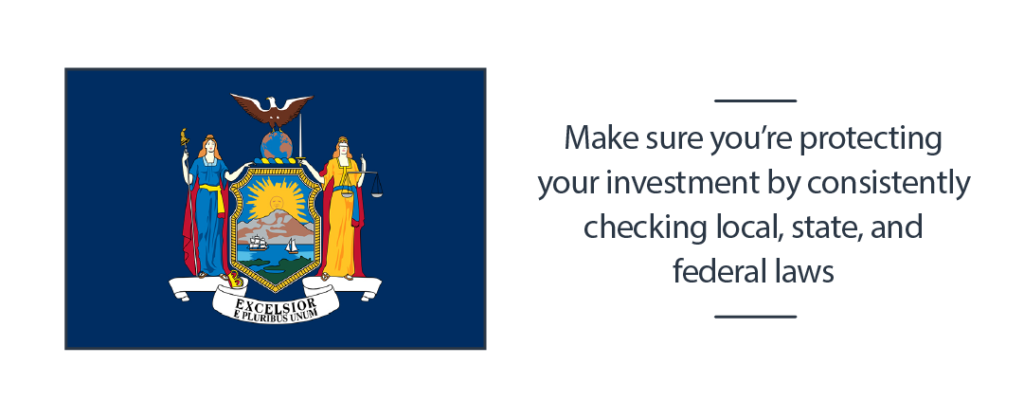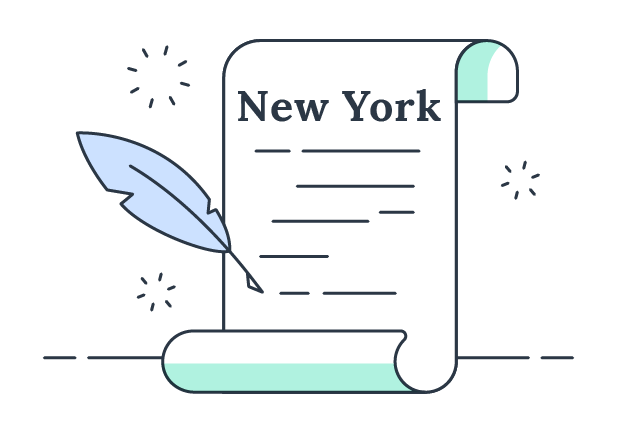Table of Contents
- New York Renters’ Rights and Landlord Responsibilities
- New York Landlords’ Rights and Tenant Responsibilities
- Application Fee
- Tenant Screening Criteria
- Security Deposits
- Required Disclosures
- Repairs
- New York Lease Agreement Sample
- New York Landlord-Tenant Law FAQ
- Due Diligence and New York Rental Laws
- New York Landlord-Tenant Law Resources
Laws that impact the rental market, landlords, and tenants are constantly being decided in states. Make sure you know what’s on your ballot – consult the New York State Board of Elections for further information about voting.


New York Renters’ Rights and Landlord Responsibilities
- Recently passed rental laws make it more difficult for landlords to evict tenants.
- Landlords are required to provide heat during the “Heat Season.”
- Security deposits are limited to a maximum of one month’s rent.
- Landlords must give a 30-day written notice before terminating a lease or raising rent.
When it comes to New York rental laws, there are a few specifics landlords need to know:
- Evictions – If a tenant fails to pay rent, the landlord must give them 14 days to pay. If they fail to pay their rent, the landlord may begin eviction proceedings. If the tenant violates the lease, they must be given 30 days to amend the violation before an eviction lawsuit can be filed. A judge may postpone an eviction for up to one year if the tenant cannot find a similar residence in the same neighborhood.
- Heat Season – Heat Season is the period between October 1st and May 31st and is a time period where access to heat is required. Landlords are required to heat their properties to at least 68 degrees when the outside temperature is below 55 degrees between the hours of 6 AM and 10 PM. Landlords are also required to provide hot water 365 days a year.
- Security Deposits – Security deposit maximums are limited to one month of rent. Landlords are required to return the security deposit within 14 days of the tenant moving out.
- Raising Rent – If a tenant has occupied a unit for more than two years, the landlord is required to give them a 90-day written notice of them raising the rent. For a tenant that has lived in a rented space for more than one year, but less than two, the landlord must provide a 60-day notice, and for anyone under one year, a 30-day notice is required.
- Rental Applications – Landlords may not collect an application fee unless they provide the potential tenant with a copy of the background or credit check and the receipt or invoice from the entity conducting the background check. (NY RPL § 238-a(1)(b))
- Portable Screening Reports – Portable screening reports are allowed in New York if the report was pulled within the past 30 days.
- Rent Stabilization – For rent stabilization properties, New York landlords must provide tenants written notice of their intent to renew lease 90-150 days prior to the start of the new term. The tenant then has 60 days to accept and 30 days to return the signed lease.
New York Landlords’ Rights and Tenant Responsibilities
- Landlords may charge up to $50 for a late rent fee.
- Tenants have the right to withhold rent until repairs are made.
- New York has no laws on dealing with abandoned property.
- Landlords cannot force a tenant out.
- Late Fee – If a tenant fails to pay rent on time, the landlord may charge a $50 late fee or 5% of the monthly rent, whichever is less.
- Withholding Rent – If a landlord fails to make a repair, the tenant has the right to withhold rent or pay for the repair and deduct the cost from their next rent payment.
- Abandoned Property – New York has no formal laws covering abandoned property, but the general principle is to store the contents of the property for 30 days.
- Harassment – It is illegal for a landlord to offer a buyout, illegally lock out, or fail to provide proper repairs in an attempt to force a tenant out of a rental.
Application Fee
New York landlords can charge up to $20 for each application, and the fee must be waived if the applicant uses the portable screening report option.
Tenant Screening Criteria
The State of New York has no added laws or restrictions around the collection of criminal background checks. Adherence to general federal law is required. To avoid the perception of discrimination, make sure your screening criteria is stated and is consistent and equal for all groups of people.
Security Deposits
- Landlords with six or more units must place collected security deposits in a separate FDIC-insured, interest-bearing account within New York. The bank’s name, address, and the amount of deposits must be displayed in the lease. The security deposit and interest must be returned within 14 days of lease termination.
- Collection of last month’s rent is prohibited.
- You can offer interest to be returned at the end of lease or credited for rent.
- Receipts are required for the collection of security deposits.
Required Disclosures
The following disclosures are required in New York City, but not the State of New York:
- Bed Bug Disclosure, including the required approved notice form and bed bug informational packet (must be attached to lease).
- And other riders must be attached to the lease.
The following disclosures are required in New York City AND in the State of New York:
- Operative Fire Sprinkler System Notification (along with the date of its last maintenance and inspection).
- Rent Stabilization Notice, including whether rent stabilization laws apply to the property along with:
- Rent paid by previous tenants.
- Any improvements made.
- Past rent increases.
- Information on the rights and duties of landlords and tenants under Rent Stabilization Law and other information on Preferential Rents, Air Conditioner Surcharges, and IAI notification requirements.
Build a State of New York or a New York City lease agreement with all of the required disclosures in less than 15 minutes.
Repairs
New York landlords must respond to a tenant’s request for repairs within 10 days, then complete the repairs in a “reasonable time period” depending on the severity of the repair.
New York Lease Agreement Sample
There are three sections to a residential lease agreement. The first section outlines the custom details of the contract, such as who’s involved and for what address. Here’s an example New York lease agreement listing details found in Section 1:
New York Landlord-Tenant Law FAQ
Below are answers to some of the most commonly-asked questions when it comes to landlord-tenant laws in New York:
How Long Does a Landlord Have to Fix Something in New York?
In New York, there is not an explicit number of days in the law that says how long a landlord has to make repairs. It’s considered the standard for landlords to fix something with a “reasonable” amount of time. If landlords fail to make repairs within a reasonable amount of time, renters can do a few things such as withholding rent, or eventually go to court and sue them. However, landlords have to follow the warranty of habitability which means the rental has to be safe and livable – for example, if the heat was broken or the water turned off the landlord needs to fix these issues so the unit remains habitable.
Can a Landlord Require Renters Insurance in New York?
New York law does not specifically state landlords can require renter’s insurance, but it does say property owners are required to have insurance on the house or building, but that doesn’t cover a renter’s personal property. Because of this, many will require in their lease agreements that tenants get renter’s insurance.
How Much Notice Does a Landlord Have to Give to Enter a Rental Property in New York?
Landlords need to give reasonable notice before entering a property – usually around 24 hours. They should also only enter a reasonable time like between working hours to maintain a tenant’s privacy.
Due Diligence and New York Rental Laws
TurboTenant has utilized many municipal sources along with official state statutes in order to compile this information to the best of our ability. However, local laws are always in flux and landlords and tenants alike should do their due diligence and consult legal help when it’s needed. We hope the following list can serve as a valuable resource and allow you to succeed as a tenant or landlord in New York. Be sure to take proper precautions when it comes to finding the top candidates for your unit by utilizing our online rental application and tenant screening services.
Disclaimer: TurboTenant, Inc does not provide legal advice. This material has been prepared for informational purposes only. All users are advised to check all applicable local, state, and federal laws, and consult legal counsel should questions arise.
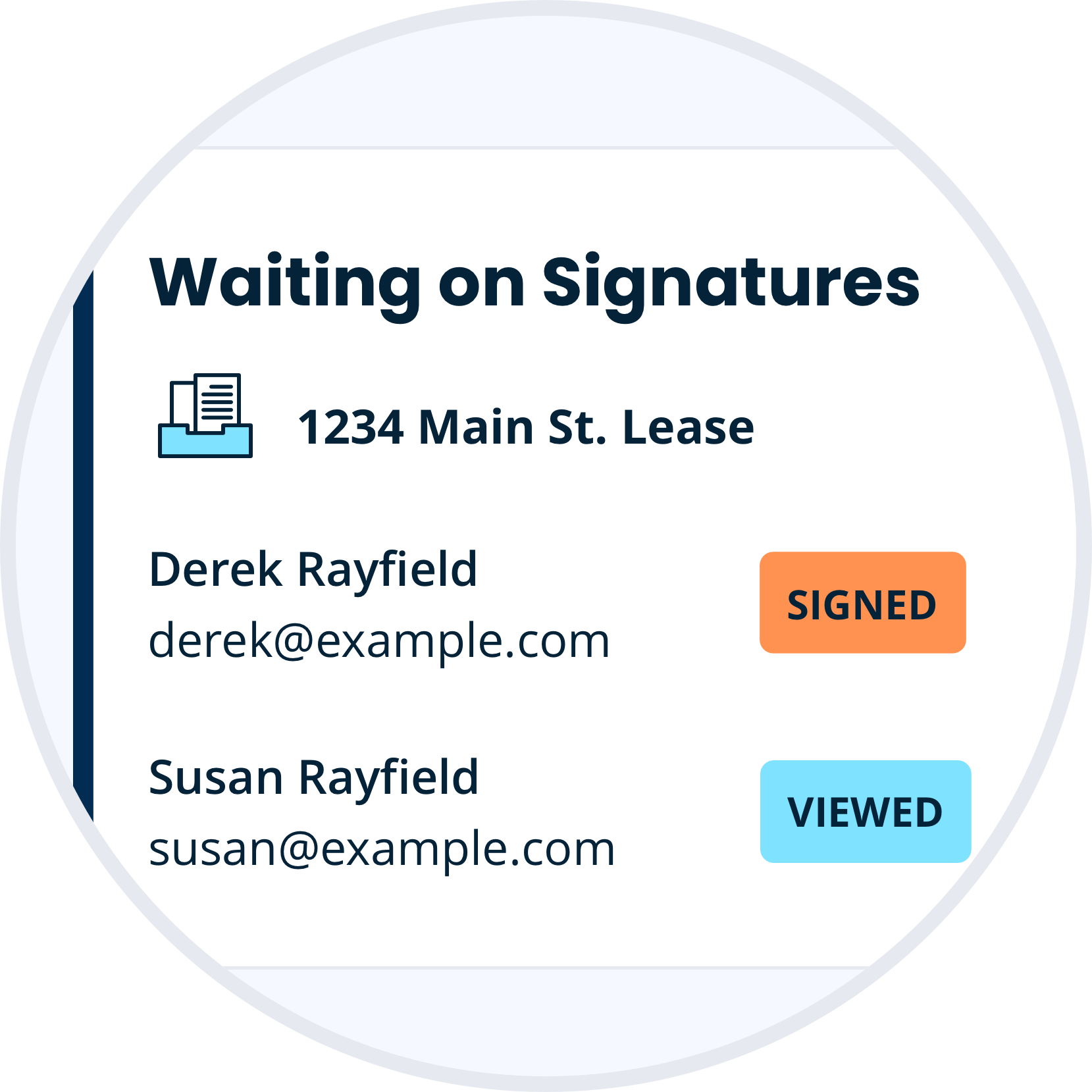
Unlimited Everything.
Create a single New York a lease agreement, or subscribe and receive unlimited lease agreements, landlord forms pack, and e-signs for a simple annual fee. Be confident with all the legal forms and tools you need as a professional landlord.
Discover Our Unlimited PlanNew York Landlord-Tenant Law Resources
- Fair Housing Justice Center
- New York Attorney General: Fair Housing
- New York City Fair Housing
- HUD Tenant Rights, Laws and Protections: New York
Other State Resources
City-Specific Housing Resources
New York City
Buffalo
Rochester
Yonkers
Syracuse
Albany
- Your Rights as a Renter | Albany, NY
- Tenants’ Rights: Common Mistakes | Albany, NY
- United Tenants of Albany, Inc – Resources for Tenants
Federal Fair Housing Resources



